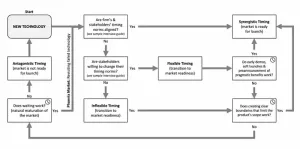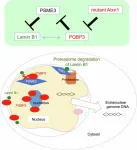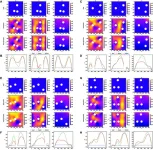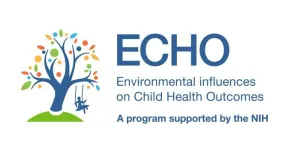(Press-News.org) New research from Bayes Business School (formerly Cass) finds that being on the cutting edge of technology is not enough to ensure success in the market, and managers must strategically time launches to create a source of opportunity and credibility for the firm.
The study, led by Dr Thomas Robinson, Senior Lecturer in Marketing at Bayes, with Dr Ela Veresiu, Associate Professor of Marketing at Schulich School of Business, York University, Toronto, develops a framework for guiding organisations on the best situations for a product launch.
The research identifies four timing situations that can confront marketing managers. Knowing the features and traits of each timing category allows firms to develop a launch strategy leading to success:
Synergistic timing is the optimal, legitimate launch condition whereby a firm and its stakeholders share norms about when things should occur. Here the market is ready for a product and stakeholders are ready to embrace change.
Flexible timing consists of low firm-led coordination but high stakeholder willingness to change. Consumers and other stakeholders initiate the legitimacy of a launch moment by being open to a product’s prospective utility. Flexible timing can become synergistic timing if a firm decides its product is sufficient for early release, or it can buy time with consumers by sharing prototype failures or ‘drip-feeding’ information about a product.
Inflexible timing occurs when there is little appetite from stakeholders to change their timing expectations, so the firm must induce appetite for new technology that can overcome stakeholder caution about the future. To move from inflexible to synergistic timing, managers should aim to restrict a product’s tech functionality or increase its dependency on human intervention.
Antagonistic timing arises when both stakeholder willingness to change and firm-led coordination are low, and launching new technology should not be a priority in this instance.
The conceptual paper draws on the 2013 release of the Google Glass augmented reality (AR) experience, which failed because it launched at the wrong moment. The firm itself was not adequately prepared, nor were consumers ready to accept the functionality of the device, leading to the glasshole moniker. A decade later, consumers are ready for public filming and social media sharing. Legislation is also in place in a way that now makes Ray-Ban’s Meta Smart Glasses a very desirable device.
Launching new technology in the market is therefore, according to the research, a social game, in which timing is an issue of poise and tact when engaging with stakeholders. Offering time signals consideration, respect, and mindfulness. Not offering enough time is rude and gets in the way of understanding and feeling comfortable around the new technology.
The research was supported by a comprehensive review of literature looking into the role of time in market legitimacy, using the Business Source Complete database to extract academic articles around subject – plus articles from 20 4*,4 and 3 ranked marketing journals that contained key words. The resulting sample of 172 articles were then coded to identify key and recurring themes around time.
Dr Robinson said insights on the role of timing are essential for firms to improve the odds of success at launch.
“While 30,000 new products are introduced every year, 95 percent fail,” he said.
“Consider a marriage proposal on the first date, a request for more time after ten years in a relationship, waiting too long to thank a relative for a birthday present or serving a dessert before the mains at a dinner party. Stakeholders have strong timing-norms about pacing, sequencing, coordination and planning that impact the readiness of the market.
“While marketers often have a linear view of technology, our research on timing reveals that it is not always the case that the old is simply replaced by the new – often old, failed technologies have a comeback.
“Product categories like AR glasses rose from their own ashes in ‘phoenix markets’, suggesting that it can be worthwhile to revisit old failures. Smartwatches, electric cars, and social media were all initial failures that later succeeded. Substantial losses could have been avoided had they had better timing frameworks.
“While the timing framework is developed for launching new technologies, our research also has broader applications for rebranding and mergers, political marketing, understanding the fashion cycle, service design and the experience economy.”
‘Timing Legitimacy: Identifying the Optimal Moment to Launch Technology in the Market’ by Dr Thomas Robinson and Professor Ela Veresiu is published in the Journal of Marketing.
END
When is the right time to launch new technologies?
Study led by Bayes helps companies avoid presenting innovative products and technologies to the marketplace at the wrong moment
2024-09-03
ELSE PRESS RELEASES FROM THIS DATE:
Mayo researchers develop tool that measures health of a person’s gut microbiome
2024-09-03
ROCHESTER, Minn. — A team of Mayo Clinic researchers has developed an innovative computational tool that analyzes the gut microbiome, a complex ecosystem of trillions of bacteria, fungi, viruses and other microorganisms within the digestive system, to provide insights into overall well-being.
In a new study published in Nature Communications, the tool demonstrated at least 80% accuracy in differentiating healthy individuals from those with any disease. The tool was developed by analyzing ...
Unveiling the molecular mechanisms linking aging with neurodegenerative diseases
2024-09-03
Tokyo Medical and Dental University (TMDU) researchers elucidate the role of PQBP3 in stabilizing the nuclear membrane and its relationship to senescence and neurodegeneration
Tokyo, Japan – Aging is the prime cause of neurodegenerative diseases, such as Alzheimer’s disease, Parkinson's disease, and amyotrophic lateral sclerosis. But what exactly increases the prevalence of these brain disorders as one grows older? The molecular forces linking aging, cellular senescence, and the onset of these neurodegenerative conditions ...
Keep devices out of bed for better sleep – Otago study
2024-09-03
Despite what we’ve been led to believe, the timing of evening screen use, rather than the activity itself, negatively impacts youth sleep, a University of Otago study has found.
Current sleep guidelines recommend no screen use in the hour or two before bed. However, the researchers found screen time in the two hours before bed had little impact on youth sleep, it was screen time once in bed that caused problems.
Lead author Dr Bradley Brosnan, of the Edgar Diabetes and Obesity Research Centre, says screen time is a mainstay in adolescents’ bedtime routines, and sleep guidelines need to be revaluated to better reflect modern life.
Published in JAMA Pediatrics, ...
Dr. Torabi to study vulnerabilities in electric vehicle charging management systems
2024-09-03
Dr. Sadegh Torabi, Assistant Professor, Information Sciences and Technology, College of Engineering and Computing (CEC), and Research Fellow at the Center for Secure Information Systems (CSIS), is set to receive funding for the project: “Collaborative Research: CISE MSI: RPEP: OAC: Macroscopic and Microscopic Inference and Analysis of Vulnerabilities within EV Charging-Management Systems.”
Via this project, Dr. Torabi and his partners will establish a collaborative ecosystem among academia, industry, and the public sector to bolster the resilience of the EV Charging Infrastructure (CI). The critical nature of EV CI has made them targets for malicious attacks, often state-sponsored, ...
Think simpler, flow faster
2024-09-03
Analyzing and simulating fluid flow is a challenging mathematical problem that impacts various scenarios, including video game engines, ocean current modeling and hurricane forecasting. The core of this challenge lies in solving the Navier–Stokes equations, a set of classical equations that describe fluid dynamics. Recently, deep learning has emerged as a powerful tool to accelerate equation solving. Using this technique, a team designed a novel approach that can provide accurate solutions 1,000 times faster than traditional equation solvers. The team’s study was published June 26 in Intelligent ...
Eating fish but not omega-3 supplements during pregnancy associated with lower likelihood of autism diagnosis, NIH-funded study finds
2024-09-03
Eating any amount of fish during pregnancy was associated with about a 20% lower likelihood of autism spectrum disorder (ASD) diagnosis, particularly in females, and a slight reduction in autism-related traits in offspring, according to a new study funded by the Environmental influences on Child Health Outcomes (ECHO) Program at the National Institutes of Health.
However, researchers did not find the same association with supplements containing omega-3 fatty acids.
Fish is an important source of omega-3 fatty acids, an essential nutrient during pregnancy for supporting maternal health and child neurodevelopment. A recent analysis of ECHO Cohort data revealed that about ...
Study: racial and ethnic designation inaccuracies in children’s medical records may impede equity efforts
2024-09-03
ANN ARBOR, Mich. – Leaders at three Michigan hospitals aiming to address equity issues for pediatric patients wanted to start with inspecting data key to identifying potential inequities.
What they learned: much of those data are inaccurate.
A study from the Michigan Child Health Equity Collaborative, or Mi-CHEC, found substantial errors across the three health systems in racial and ethnic designations in their electronic medical records. Accuracy of these designations are important to clinical care improvement ...
Penn study finds taking semaglutide for weight management does not increase risk of depression or suicidal behavior in people without known major psychopathology
2024-09-03
PHILADELPHIA— Taking the weight loss medication semaglutide did not increase the risk of depressive symptoms, suicidal thoughts, or suicidal behavior in persons without known major mental health disorders, according to a new study led by researchers from the Perelman School of Medicine at the University of Pennsylvania published this week in JAMA Internal Medicine. Both the Food and Drug Administration (FDA) and the European Medicines Agency are actively monitoring the psychiatric safety of semaglutide and similar medications after post marketing surveillance reports of depression, suicidal thoughts (ideation), ...
GLP-1 receptor agonist use and risk of suicide death
2024-09-03
About The Study: This cohort study, including mostly patients with type 2 diabetes, does not show an association between use of glucagon-like peptide-1 (GLP-1) receptor agonists and an increased risk of suicide death, self-harm, or incident depression and anxiety-related disorders.
Corresponding Author: To contact the corresponding author, Peter Ueda, MD, PhD, email peter.ueda@ki.se.
To access the embargoed study: Visit our For The Media website at this link https://media.jamanetwork.com/
(doi:10.1001/jamainternmed.2024.4369)
Editor’s ...
Psychiatric safety of semaglutide for weight management in people without known major psychopathology
2024-09-03
About The Study: The results of this post hoc analysis suggest that treatment with semaglutide, 2.4 mg, did not increase the risk of developing symptoms of depression or suicidal ideation/behavior vs placebo and was associated with a small but statistically significant reduction in depressive symptoms (not considered clinically meaningful). People with obesity should be monitored for mental health concerns so they can receive appropriate support and care.
Corresponding Author: To contact the corresponding author, Thomas A. Wadden, PhD, email wadden@pennmedicine.upenn.edu.
To access the embargoed study: Visit our For The Media website at this link https://media.jamanetwork.com/
(doi:10.1001/jamainternmed.2024.4346)
Editor’s ...
LAST 30 PRESS RELEASES:
GLP-1 drugs associated with reduced need for emergency care for migraine
New knowledge on heritability paves the way for better treatment of people with chronic inflammatory bowel disease
Under the Lens: Microbiologists Nicola Holden and Gil Domingue weigh in on the raw milk debate
Science reveals why you can’t resist a snack – even when you’re full
Kidney cancer study finds belzutifan plus pembrolizumab post-surgery helps patients at high risk for relapse stay cancer-free longer
Alkali cation effects in electrochemical carbon dioxide reduction
Test platforms for charging wireless cars now fit on a bench
$3 million NIH grant funds national study of Medicare Advantage’s benefit expansion into social supports
Amplified Sciences achieves CAP accreditation for cutting-edge diagnostic lab
Fred Hutch announces 12 recipients of the annual Harold M. Weintraub Graduate Student Award
Native forest litter helps rebuild soil life in post-mining landscapes
Mountain soils in arid regions may emit more greenhouse gas as climate shifts, new study finds
Pairing biochar with other soil amendments could unlock stronger gains in soil health
Why do we get a skip in our step when we’re happy? Thank dopamine
UC Irvine scientists uncover cellular mechanism behind muscle repair
Platform to map living brain noninvasively takes next big step
Stress-testing the Cascadia Subduction Zone reveals variability that could impact how earthquakes spread
We may be underestimating the true carbon cost of northern wildfires
Blood test predicts which bladder cancer patients may safely skip surgery
Kennesaw State's Vijay Anand honored as National Academy of Inventors Senior Member
Recovery from whaling reveals the role of age in Humpback reproduction
Can the canny tick help prevent disease like MS and cancer?
Newcomer children show lower rates of emergency department use for non‑urgent conditions, study finds
Cognitive and neuropsychiatric function in former American football players
From trash to climate tech: rubber gloves find new life as carbon capturers materials
A step towards needed treatments for hantaviruses in new molecular map
Boys are more motivated, while girls are more compassionate?
Study identifies opposing roles for IL6 and IL6R in long-term mortality
AI accurately spots medical disorder from privacy-conscious hand images
Transient Pauli blocking for broadband ultrafast optical switching
[Press-News.org] When is the right time to launch new technologies?Study led by Bayes helps companies avoid presenting innovative products and technologies to the marketplace at the wrong moment



